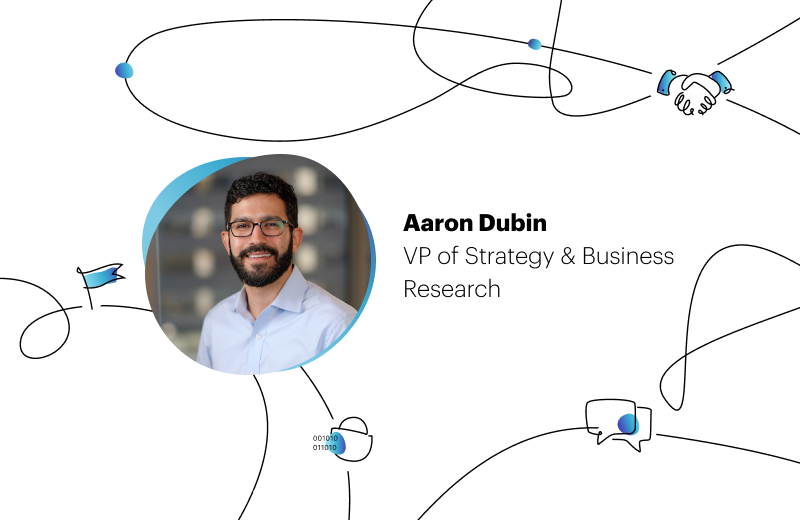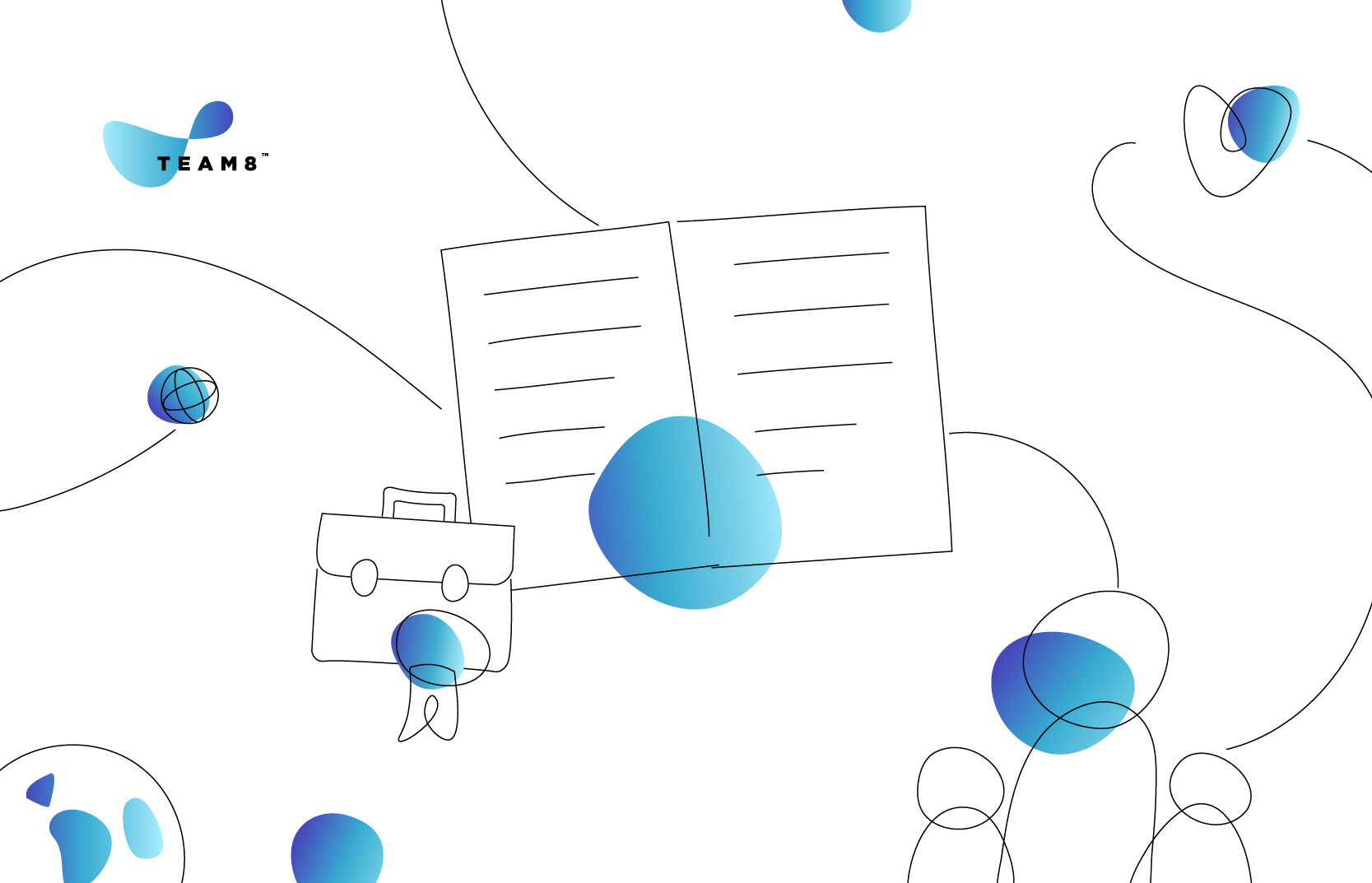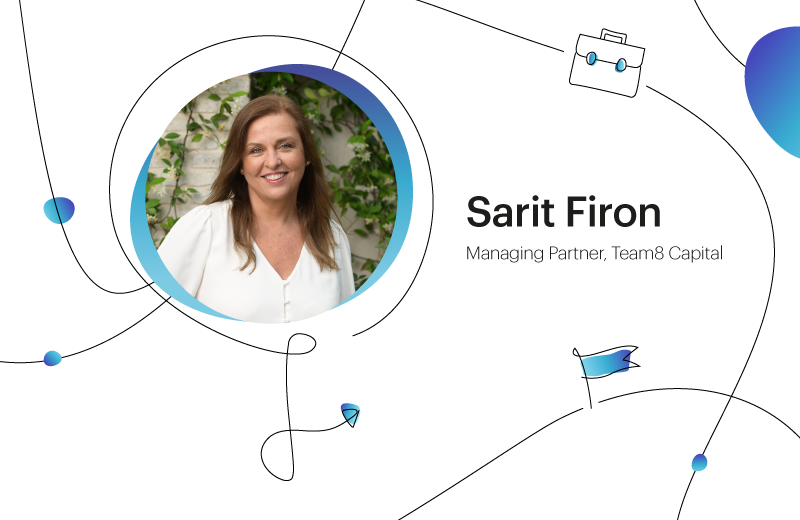A few months ago, I was truly enjoying my work as the founding Executive Director of the Northeast Big Data Innovation Hub, an inventive National Science Foundation initiative hosted at a prestigious university — my alma mater, Columbia. We were developing meaningful initiatives and I’d just launched phase II of the Hub. For the latter, we had been awarded another $4 million dollars to continue to build bridges between industry, academia, government, and nonprofits to solve substantial societal challenges.
…And then I heard from Team8. A recruiter told me the company-building venture group was creating the position of Director of Scientific Ecosystem and Ideation. My interest couldn’t help but be piqued.
Not Your Grandfather’s Venture Capital Firm
Team8 is no regular VC firm, it’s a robust venture platform that both builds and invests in category-leading startups. As the co-founder of a number of startups and a lean startup instructor, I’d spent years thinking about how to de-risk early-stage companies and had been fascinated by the venture foundry model. Team8 has developed a successful platform, with strong research, go-to-market, and talent hiring capabilities. They don’t just invest in companies, they tackle difficult challenges and work hand-in-hand with entrepreneurs and enterprises to validate solutions from company ideation through launch and scale-up.
In addition to their in-house group of researchers and problem solvers, Team8 recognized that resolving big challenges requires the knowledge and experience of experts beyond its talented internal team. The Team8 Village has met this need by building long-term relationships with and drawing upon C-level executives across industries to help create, guide, and grow its portfolio companies.
Team8 is backed by global companies including Microsoft, Walmart, AT&T, Cisco, Airbus, and Barclays, among others. Its leadership is composed of former CEOs, serial entrepreneurs, and the former leaders of Israel’s elite technology and intelligence Unit 8200 (the equivalent of the U.S. NSA).
The company has recently extended its model by launching Team8 Capital to fund enterprise technology, cybersecurity, data science, and AI-focused companies across market segments of interest (learn more here Team8 Extends Its Model).
Growing the Village to Amplify Innovation
Team8 is now expanding its Village to include academia. The Director of Scientific Ecosystems and Ideation is a new position created to lead this effort. The role also includes developing a dynamic mapping of institutions and relationships with faculty who address Team8’s technology focus areas — AI, machine learning, and data science applied to cybersecurity, operational technology, fintech, and other growth areas. Team8 is a rare company that genuinely values use-inspired, interdisciplinary research. Its goal is to build even deeper ties with academia and local communities by partnering to amplify innovation ecosystems. The firm understands that this will elevate it’s access to novel technology and strong talent as well as increase the prospects of local and regional communities to leverage science and technology to develop stronger, more inclusive economies.
I’ve spent my entire career focused on the transfer of knowledge and technology between academia, industry, government, and nonprofits. I’ve had the good fortune of engaging in innovation, entrepreneurship, technology transfer & commercialization, business development, public/private collaborations, and economic development — the same blend of skills and experience needed to build the Team8 scientific ecosystem. This opportunity seemed like a perfect fit for me. I was hooked.
Impact of New Initiatives
In the two months since I joined Team8, I’ve taken the lead on a number of partnerships that had been skillfully developed by
Our Vice President of Business Operations. I owe him many thanks for handing over such rich relationships. These include our New York City relationships with NYU, CUNY, Cornell, and — full circle — Columbia. On the latter, we’ve partnered with the fantastic team at the new Cyber NYC Inventor to Founders accelerator and I recently had the opportunity to support their talented first cohort.

One of our deepest partnerships is with the George Kaiser Family Foundation (GKFF) and the University of Tulsa (TU). This is a multi-year partnership to work with GKFF and TU to enhance Tulsa’s growing entrepreneurial ecosystem. It’s based on the idea that talent is more distributed than ever — the trick is to develop the fertile ground for it to flourish. When I was the Chief Business Officer at the New York Academy of Sciences, I advised city, state, and national governments around the world on how to leverage science and technology for economic development. A big challenge in developing successful innovation ecosystems is establishing programs that will survive beyond the government administrations that launch them. One of the most effective ways to do so is to engage local foundations and philanthropic organizations which have aligned incentives and the ability to stay the course for the long-term. Imagine my delight when I discovered that the lynchpin of the Tulsa initiative was GKFF. Even before our partnership, the foundation had started working to magnify Tulsa’s potential for entrepreneurship and an inclusive economy.
“A big challenge in developing successful innovation ecosystems is establishing programs that will survive beyond the government administrations that launch them.”
The cornerstone of our initiative with GKFF is the TU-Team8 Cyber Fellows program — a Ph.D. program encompassing cybersecurity, machine learning, and artificial intelligence. Since I joined, I’m happy to say that the first eight doctoral students have been accepted into the program. We’re in the process of developing complementary programs to enhance their studies with intellectual property and entrepreneurship training as well as access to Team8’s Village; and, in collaboration with GKFF’s Tulsa Innovation Labs, to resources, companies and executives in the Tulsa community relevant to their research. You can read more about the program in Ben’s post: What can we achieve with 100 PhDs?
A few months ago, I wouldn’t have dreamed that I’d be stepping down from the work I loved at the NE Big Data Hub to start a new role at the beginning of a pandemic that would disrupt the global economy. As COVID-19 is accelerating the large-scale adoption of digital, cloud, and work-from-home technologies, I’m fortunate to have joined an organization that is poised to help enterprises make this transition effectively and securely — and one that is playing a long-game by supporting use-inspired research and expanding its Village to address the challenges we’ll face further ahead.
Originally appeared on Medium





